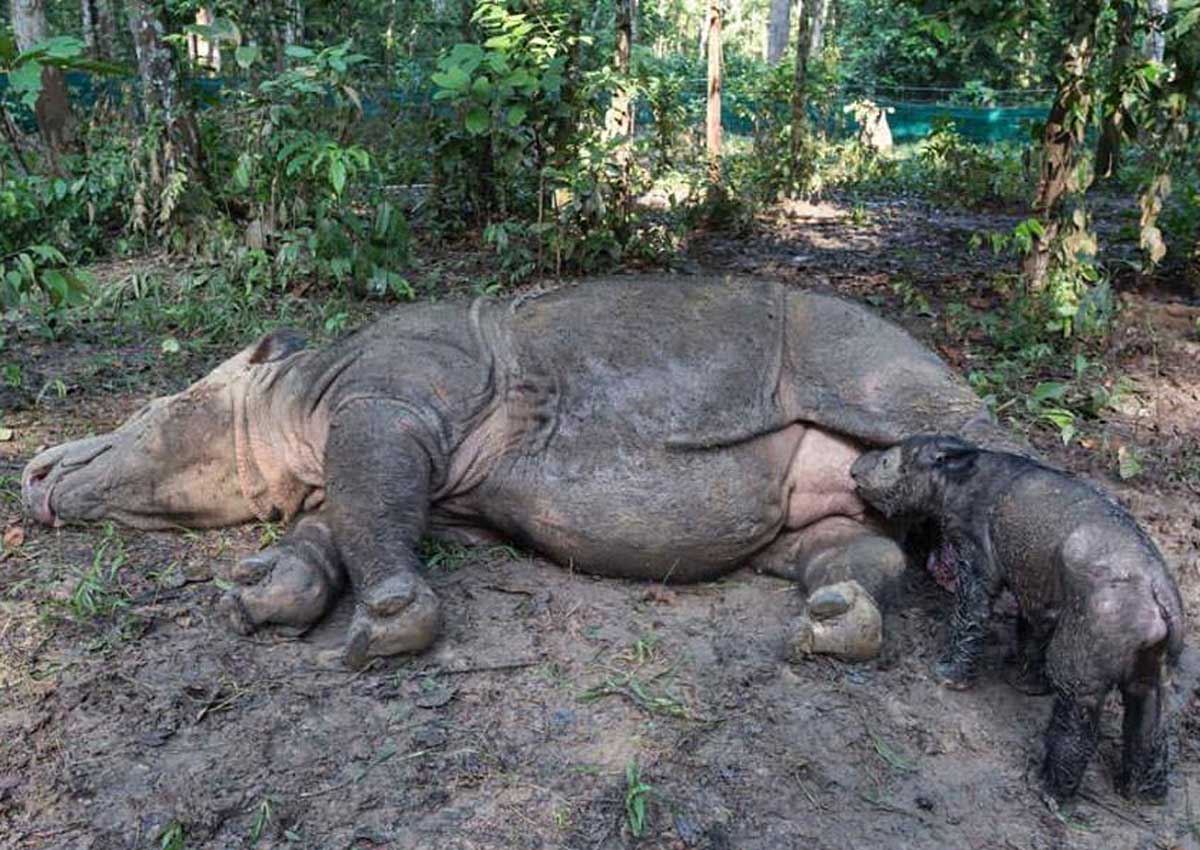Jakarta – The rare birth of a Sumatran rhino in Indonesia has been hailed a victory for the critically endangered species, which has been almost wiped out in the wild by poaching and habitat destruction.
Conservationists wept in joy as the healthy female calf was born on western Sumatra island on Thursday, just the fifth rhino of its kind born in a breeding facility.
The newborn was walking within hours and has since grown stronger, feeding and bonding with its mother, a conservationist at the rhino sanctuary in Sumatra told AFP.
Sumatran rhinos are extremely rare, with just 100 believed to exist worldwide.
Susie Ellis, the head of the International Rhino Foundation, said their scarcity in the wild made this birth “extremely significant”.
“Every birth counts,” she told AFP from Sumatra.
“One birth doesn’t save the species, but it’s one more Sumatran rhino.” Sumatran rhinos are targeted by poachers as their horns and other body parts fetch high prices on the black market for use in traditional Chinese medicine.
Their rainforest habitat on Sumatra island is also being destroyed due to the rapid expansion of palm oil and pulp and paper plantations.
Last year, they were declared extinct in Malaysia.
The remaining rhinos, distinctive for their woolly hair and twin horns, often exist in small herds of two to five within their jungle habitats in Indonesia.
Ellis said conservationists planned to consolidate these smaller groups into a larger population, so the rhinos can find suitable mates and ensure the longevity of the species.
It will be at least six or seven years before the newborn is ready to mate. For now the calf – which has not yet been named – will remain in the sanctuary where she’s under 24-hour observation.
“She seems to be healthy,” Ellis said.
“They come out and they’re so skinny, but she’s started to fill out a little bit today.” It was the second time the newborn’s mother, Ratu, had given birth at the facility.
Her previous birth four years ago marked the first time a Sumatran rhino had been born in an Asian breeding facility for more than 140 years.
Despite being the smallest of the five remaining rhino species, Sumatran rhinos have very long pregnancies that last about 16 months.
Experts who witnessed the rare birth, including some who travelled from the United States and Australia, cheered, prayed and wept as the newborn took its first steps, Ellis said.
“I burst into tears, because it was just such a special moment and such a joyous occasion,” she added.
It’s hoped Ratu, a 14-year-old rhino that wandered out of the rainforest a decade ago, could give birth to more young in the future, Ellis added.











